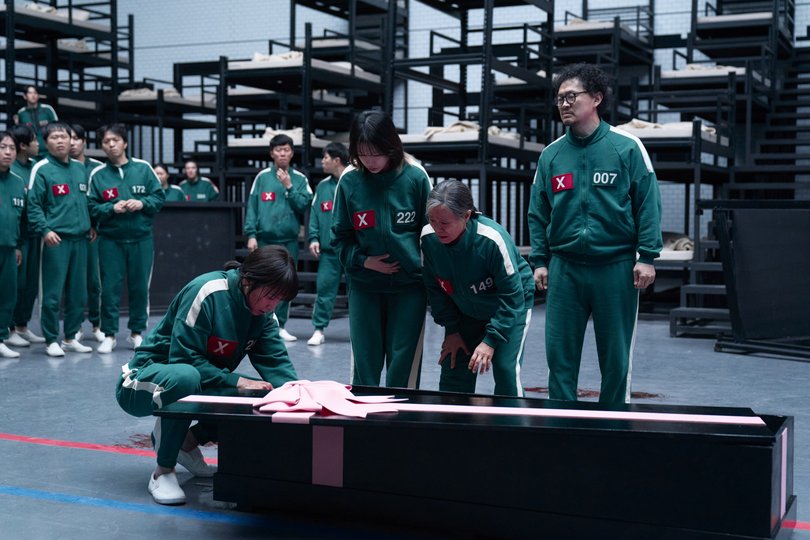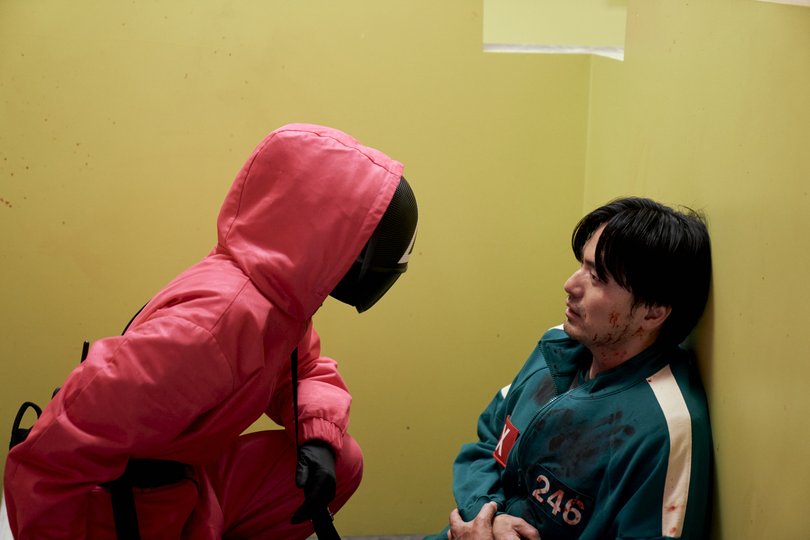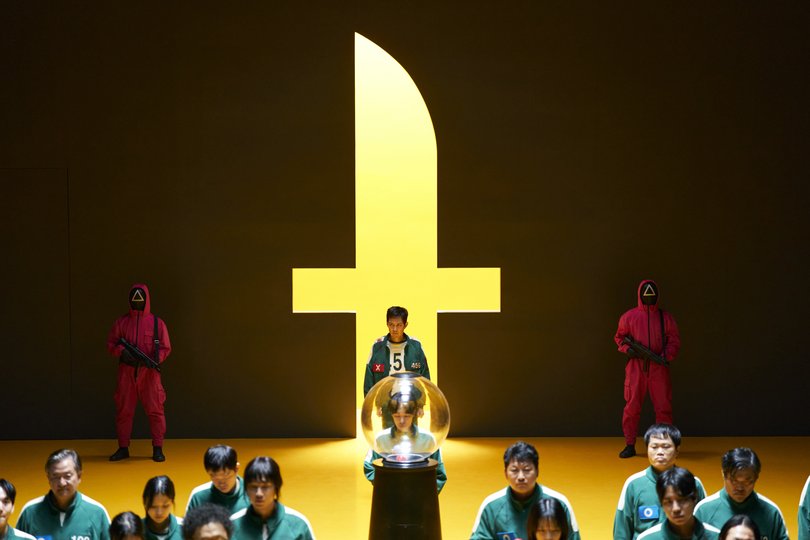Squid Game season three review: The uneasy intersection of despair and hope
Squid Game’s final episodes are now live, and in between the visual spectacle and the high body count, it’s asking some deeper questions about humanity.

“Do you still have faith in people?”
The question is directed at Seong Gi-hun, the desperate protagonist of Netflix sensation Squid Game, but it’s a query asked of the audience.
There’s a lot going on in the world – prejudice, wars, autocrats, weaponised famine, climate catastrophe, and a wealth gap so offensive it enables one tech titan to blow $US55 million on his wedding while a billion people live in poverty.
Sign up to The Nightly's newsletters.
Get the first look at the digital newspaper, curated daily stories and breaking headlines delivered to your inbox.
By continuing you agree to our Terms and Privacy Policy.With everything we have seen, an easy “yes” is elusive, just as it is for Gi-hun (Lee Jung-jae), after everything he has experienced in the murderous games. Why do hundreds of people at a time subject themselves to its tortures? Hope.
Squid Game operates at the intersection of hope and despair, and while it seems, often, to be the TV series with the most damning view on humanity (outside of reality TV, where dignity goes to die), it is also conflicted.
Almost all of its characters live in hope. Not necessarily for a better world, but a better world for them.

The final season of Squid Game is now live, and although it is officially called season three, it is, really, part two to the batch of episodes that dropped in December.
Spanning six episodes, five of which were made available for review, Squid Game mostly thrills and entertains, is occasionally affecting, and is always impressive for its visually spectacular production.
At this point, with the unnecessary, plot-wise, second and third seasons, the value of the show is more about what it adds to the conversation about how humans under pressure behave.
On this, Squid Game is deeply cynical.
The episodes pick up exactly where it left off, after Gi-hun’s failed armed rebellion against the Front Man. He is taken back to the players’ room, where the depleted ranks resume playing.
If you remember, creator Hwang Dong-hyuk, who also wrote and directed every episode, changed it up so that after each game, the remaining players can vote on whether to continue to go home, with their lives and an equal share of the pot of money that grows with each new death.
No pleading will work stop them from discarding the lives and agency of others, not from Gi-hun, not from an old woman, or on behalf of a pure innocent. Nothing and no one will move the rest of the players from acting in self-interest.

It’s not as if those remaining are all coded as sociopaths, although a few must certainly be, but it does explore the conditions in which an otherwise “regular” person can be manipulated to repress their empathy drive.
The Front Man assures the VIPs (yes, the dreaded billionaires are back, and yes, the performances are still so bad you have to double check the English-speaking roles weren’t dubbed with an English-language audio track), that the players will keep going.
They will not vote to end the game despite their personal shares growing to the equivalent of almost $10 million, because what’s at play here is if there is a limitation to human greed. Why take home $10 million if you could potentially take home $15 million, $20 million, the whole damn kitty?
As a viewing experience, Squid Game throws up a challenge. How much do you loathe the individuals involved, the bullying alpha male player 100, for example, and how much do you accept that there are levers being pulled to socially engineer and encourage such behaviour?
It’s asking us to confront our own complicity, and expand that out to every time you’ve pointed a finger at an individual when the greater share of guilt belongs to the barriers erected in service of the status quo.

The Front Man can promise progression to the final game because he understands the conditions in which the contestants live – the enormous shiny pot of money dangled out of reach, the external institutions that put them in positions of debt and peril, the psychology that underpins a hide-and-seek game that is literally kill or be killed.
Also, the predictability of how humans collectivise, and the way imposing personalities dominate those perceived as “weaker”, or outcast those that are different. The players organise themselves the way they do because humans have exhibited similar patterns for millennia.
This is all very glass half-empty stuff. A zero sum game that ensures community will always come second.
And yet. There’s hope. There’s hope beyond improving your own situation.
Squid Game shows it through the way characters such as players 222, 120 and 149 look for each other as a group, or the fact Gi-hun re-entered the game at all. He only returned because he wanted to stop it for good – in both senses of the word.
It’s that hope, however small it burns, that sustains him, although it is certainly challenged many times before he’s asked whether he still has faith in people.
The answer depends on how it all washes up in that final episode, whether Squid Game leaves a legacy of misanthropy or the possibility of a better world.
Squid Game is streaming on Netflix

